Body Composition Exercise
Proper training, exercises, and diet are all you need to build the body of your dreams.
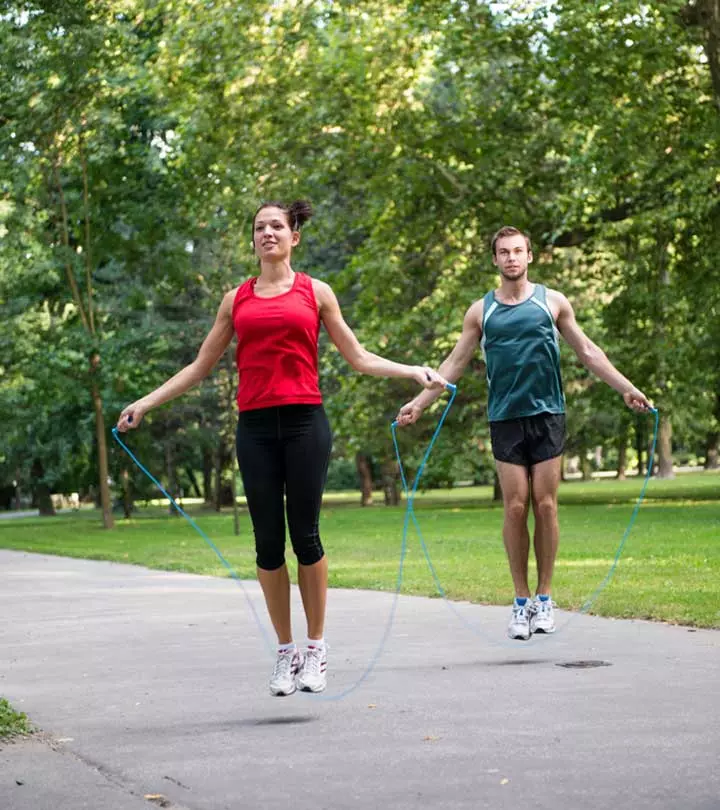
Image: Shutterstock
Body composition exercises help to make your body look fit and toned. It is essential to understand your body composition (how much of your body is muscle vs. how much is fat) to get the physique you want. When you want to look fitter or “tone up,” that entails changing your body composition to have more muscle and less fat, or at least preserving your muscle mass and losing the fat on top of your muscles.
This article provides exercises to help you build muscle and lose fat to get the toned body composition you desire. Do the exercises below to achieve your optimal body composition. Take a look!
In This Article
What Is Body Composition?
In simple terms, body composition is the body fat distribution in the human body. It is measured through the ratio of fat to lean mass (anything that is not fat) that is present in your body. Body composition makes up your total weight, and it is key to know your body composition instead of just your weight to understand how much of you is muscle and how much is fat. For men, a healthy body fat percentage ranges between 18-24%, and for women, a healthy body fat percentage ranges from 25-31%. However, these percentages are subject to change based on the person’s age, muscle mass, activity level, and health conditions (1). For example, athletes typically have lower body percentages and more muscle mass.
Once you have understood your target body fat percentage, it becomes a lot easier to tailor your diet and workout routines to get the best results. Learn how to do that below.
Key Takeaways
- Body composition is the ratio of lean body mass to fat in the body. Cardio exercises and strength exercises can help you achieve your ideal body composition.
- Try strength and resistance exercises, like push-ups, burpees, deadlifts, planks, sit-ups, and pull-ups
- Lifestyle changes like enough sleep, a balanced meal, and meditating or breathing exercises can also help.
How To Find Out Your Body Fat Percentage
There are various methods to determine your body fat percentage. One of the simplest and most accessible approaches is using a body fat scale or handheld device that utilizes bioelectrical impedance. These instruments send a low electrical current through your body to estimate your body fat (2).
Skinfold calipers are another tool that measures the thickness of skinfolds at various locations on your body (2).
More advanced techniques include dual-energy x-ray absorptiometry (DXA) scans, which are precise but typically require specialized equipment and professional supervision (2).
Additionally, some health and fitness apps offer body fat calculations based on measurements and information you provide. While these methods can provide estimates, it is important to remember that your body fat percentage can vary depending on factors like hydration levels.
It is essential to understand that no two persons will have the same body composition. For example, two people weighing the same and even the same height can have different body compositions because one may have proportionally more muscle while another may have more fat.
 Did You Know?
Did You Know?Since muscle fibers are denser than fat, they take up less space. So, a person with more muscles has fewer inches than a person with fat. So, when you lose inches, you are likely losing fat (3).
Try taking measurements once a month and keeping a fitness journal to track your progress. Write down your workouts, what you eat, and your body measurements. This will help you see how far you have come and keep you motivated.
In order to achieve your ideal body composition, focus on burning fat and building muscles (or at least preserving muscle). Here are a few simple body composition exercises along with dietary changes that you can incorporate into your lifestyle.
Adding Cardio Workouts To Your Exercise Routine
Cardio workouts are called so as they are the best for your cardiovascular health. They are a great way to get your heart rate pumping, boost your metabolic rate, burn calories, break a sweat, and burn fat. Mix mostly moderate-intensity cardio, like 20-30 minutes of walking at about the same pace, with high-intensity interval training (HIIT) — where you work at alternating low and high intensities — to help burn fat and strengthen your cardiovascular system (4).
Here are the top 4 cardio exercises you can do at home or the gym.
1. On The Spot Marches Or Skips
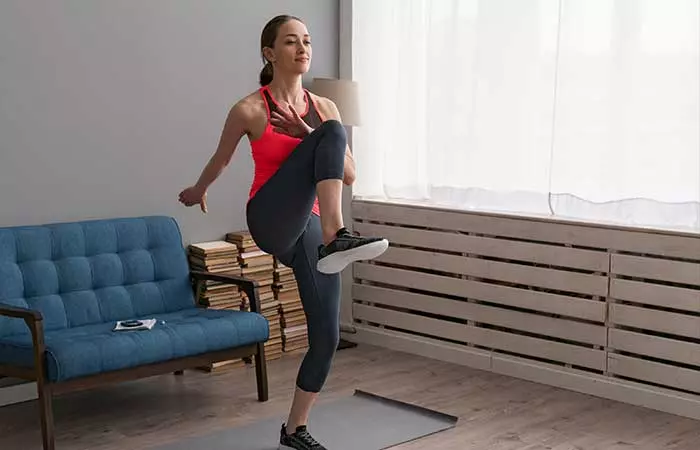
A simple yet effective exercise that increases your heart rate and gets your body all warmed up.
To perform this exercise:
- Stand in one spot with your feet hip-width apart.
- Keep your back tall, core tight, and squeeze your glutes.
- Raise your knees in an alternative manner to your chest level or as high as you can. Do not lean, wobble, or lift your shoulders.
- Add a hop to make this a skip.
- Perform this movement continuously for 30 seconds and rest for 15 seconds.
- Repeat 3-5 rounds for a warm-up.
2. Jump Rope
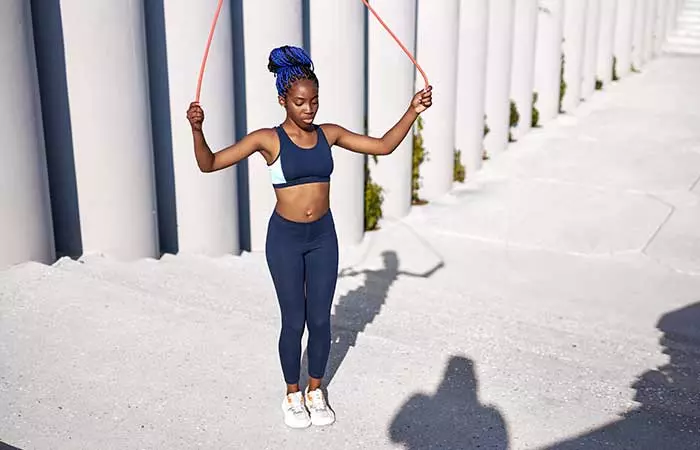
Another simple exercise where all you have to do is jump in the same spot swinging your arms using a jump rope. Perform this movement continuously for 30 seconds and rest for 15 seconds. Do this 3-5 times to get warmed up.
Merve Yılmaz, a blogger, shared her experience of taking the 7-day rope challenge. Amazed by the results, she was motivated to take on a greater challenge. She says, “The 7-day jump rope challenge not only helped me achieve physical results but also left me feeling energized and positive. The weight loss and inches lost in such a short period of time were a pleasant surprise, and it has motivated me to take on an even bigger challenge (i).” Merve is of the opinion that it is a very simple yet effective exercise to achieve one’s fitness goals.
3. Jumping Jacks
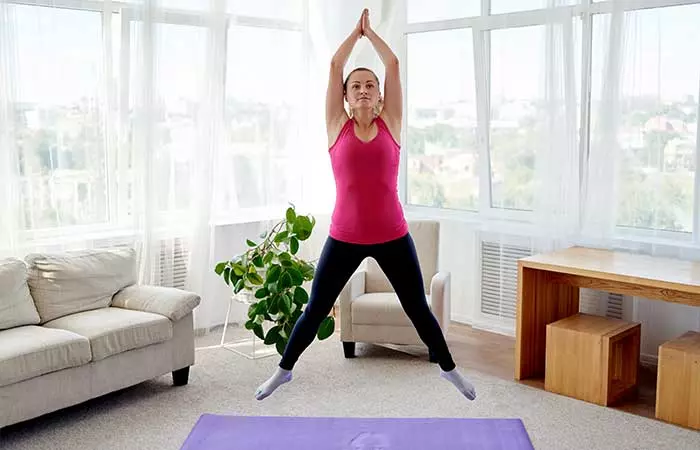
This simple exercise will surely get your heart rate pumping.
To perform this exercise:
- Stand with your feet hip-width apart with your arms on the side.
- Jump out with your hand raised over your head and feet spread apart, and jump back in by bringing your hands by your side and feet back to being hip-width apart.
- Make sure your knees don’t roll inward, and your arms stay straight.
- You can scale this down by avoiding the jump and stepping from side to side.
- Perform this movement continuously for 30 seconds and rest for 15 seconds. Repeat it for 3-5 rounds to warm up.
4. Squats
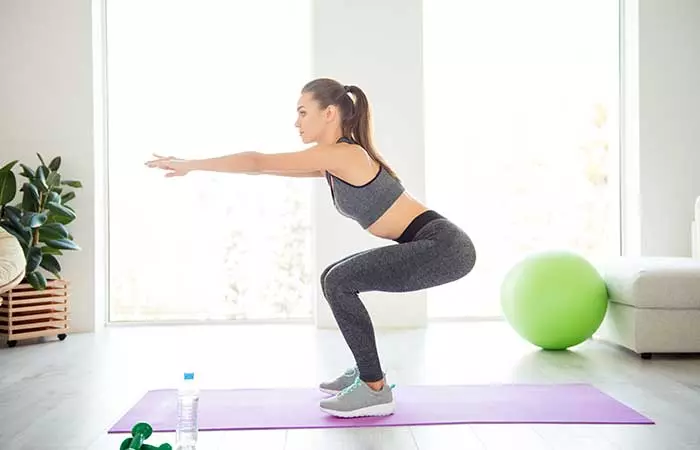
Squats are great for building lower body strength, especially your quadriceps, calf muscles, hamstrings, and glute muscles.
To perform this exercise:
- Start by spreading your feet slightly wider than your hips; your toes turned out to about 11 and 1 o’clock.
- Place your arms at your chest and pack your shoulders down.
- Send your hips back. Raise your arms forward at shoulder level and begin to bend your knees and lower your hips while keeping your upper body and back straight.
- Straighten your legs and bring your hips under you to stand up tall.
- Perform 3-5 rounds.
- For the scaled-down version of this exercise, you can reduce the depth of your squat. Make sure your lower back does not round at the bottom of the squat. Instead of going too deep into your squat, you can cut the range of motion in half.
- When you have mastered a bodyweight squat, hold 1 weight at your chest in a goblet style (hold under the round head of the weight with your palms up).
5. Lunges
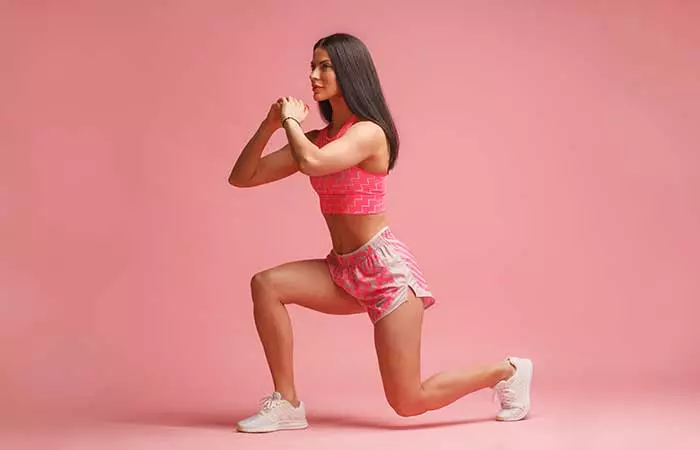
Lunges are a fantastic exercise for strengthening the lower body, especially your quadriceps, glutes, and hamstrings, and also help build core strength and balance. Since they work multiple muscle groups, they burn a lot of calories and help maintain your muscle mass as well.
There are many variations to a lunge but start with a reverse (back) lunge.
To perform this exercise:
- Stand with your back straight, abs in, and shoulders rolled back.
Keeping your chest up, take your right leg back in such a way that your knee is right above your ankle, and your thigh is parallel to the ground. - Your left leg should also be bent to 90 degrees with your knees tracking over your middle toes, not rolling in. and must be a few inches above the ground. For balance, you could keep your hands on your hips, or if you like a challenge, you can cross them in front of your chest.
- Push yourself up and bring your back leg in to meet your front, straightening both legs and bringing them together at the top.
- Repeat 8 times with the right leg, then switch to stand up and repeat the same with the left leg.
You can downscale this exercise by reducing the depth of your lunge or not stepping back and staying in place for a split squat. - Do 3-5 rounds. Repeat this 10-15 times on each side and do 3-5 rounds.
- When you have mastered bodyweight lunges, hold 1 weight at your chest in a goblet style (hold under the round head of the weight with your palms up).
Cardio and HIIT will help you burn calories and therefore help with losing body fat. Apart from cardio training, it is essential to incorporate an element of strength and resistance training in your workout routine to preserve your muscle and achieve a “toned” look.
Including Strength & Resistance Training In Your Workouts
Research shows that by including strength and resistance training in your workout routine, you build lean muscle, improve mobility, and develop overall body strength. Since muscle burns calories, having more muscle helps you burn more fat!
Compound movements in strength training are best for building muscle and losing fat. They work multiple muscle groups at the same time, giving you maximum muscle strengthening and burning lots of calories to help you build muscle tone and lose fat (5).
A study was undertaken to examine the varying effects of a resistance training program on flexibility, muscular fitness, and body composition in 764 participants aged 50–80 years. When it came to chair stands, women of 50-65 (24.3%) and 65-80 (16%) performed better than men (18.8% and 13.7%). For sit-ups, women aged 65–80 years (18.6%) did better than the men (13.6%) of the same age group.
Here are the top 7 strength and resistance exercises to help achieve your ideal body composition.
1. The Push-Up
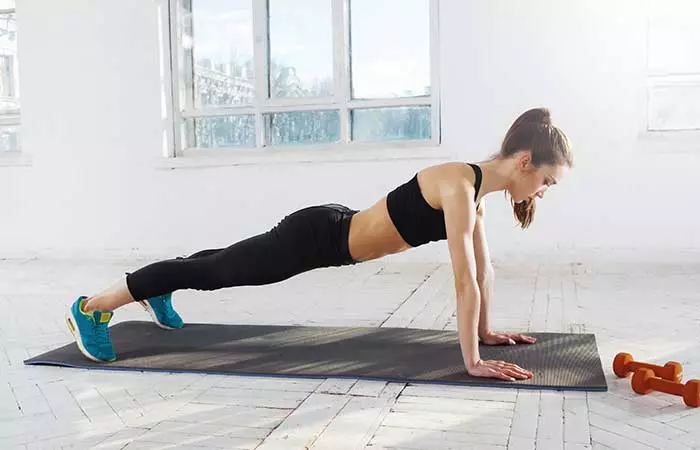
When it comes to building strength, push-ups are one of the best exercises that you can do. This simple compound movement targets your chest, triceps, shoulders, core and abdominal muscles, and glutes. Given the simple nature of the push-up, you can perform this from the comfort of your home or even in the gym. No equipment is required for this exercise.
- To perform the push-up, start by getting down on your hands and knees and placing your wrists directly below your shoulders.
- Move both your feet back into a plank so that your entire body is in one straight line.
- Brace your core muscles, draw your belly in and begin to lower your chest by bending your elbows.
- Bend your elbows back to 45 degrees by squeezing your shoulder blades together. Do not flare your elbows out to the sides or round your upper back.
- Lower as much as you can without dropping your hips or lifting your shoulders.
- Push yourself up by straightening your arms and separating your shoulder blades. If you are a beginner, you can scale this down by keeping your knees on the ground or placing your hands on a wall at chest level.
- Aim for 10 consecutive push-ups and gradually increase the number of reps as you feel comfortable. Perform this for 2-3 rounds, resting 30 seconds between rounds.
2. The Burpee
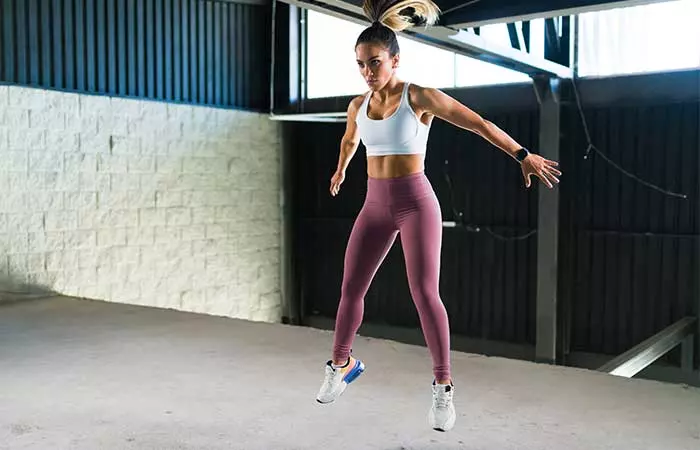
This is an explosive exercise as it involves an element of cardio and strength training. This targets all muscle groups in the body such as your arms, shoulders, core, and lower body.
- To perform the burpee, start off in the push-up position, jump and bring your knees to your chest and jump up to stand tall.
- Go back to the ground by jumping and bringing your knees back to get back into the push-up position.
- To scale this down, you can do one of the two alternatives— instead of jumping on your knees, you can step your knees to your chest and stand up with the jump, or you can avoid the jump when you stand.
- If you really want to challenge yourself, add a push-up when you are in the plank.
- Set a timer for 30 seconds and do as many reps as you can and take a 10-second break.
- Perform this for 3-5 rounds.
3. Deadlifts
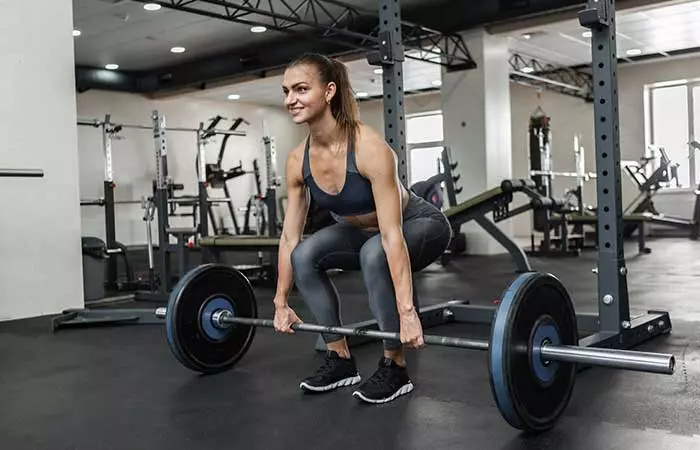
Strength training is incomplete without performing the super compound movement – the deadlifts. This movement targets some of the major muscle groups like your shoulders, arms, core, back, quadriceps, hips, hamstrings, and calves.
- You could use a barbell with weights or a kettlebell based on your weight preference to perform the deadlift.
- Start by placing the barbell on the floor or the kettlebell between your heels.
- Stand with your feet hip-width apart. If using a barbell, you must place your toes under the bar with your shins touching the bar.
- Push your hips back, keeping your back straight, and begin to squat down to reach the barbell.
- Grab the bar with your hands while keeping your knees bent, and pack your shoulders down.
- Pull the weight slowly, stand tall, pull the barbell closer to your hips, and straighten your legs to stand up tall.
- Slowly lower the barbell in the same way you picked it up, sending your hips back and squatting down to pick it up. Perform 10-15 reps and do this for 3 rounds, resting for 60 seconds between rounds (6).
4. The Plank
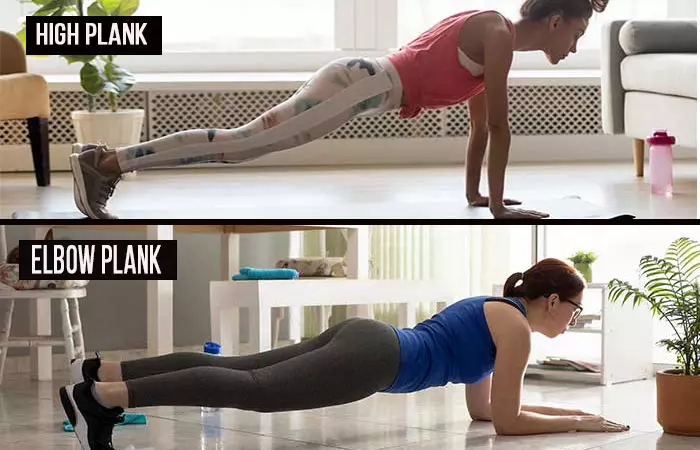
A simple yet challenging exercise that will leave your entire body shaking and help you build a strong core.
- To do the plank, get into the pushup position, ensure your wrists are directly below your shoulder.
- Your hips and shoulders should be in one straight line. Ensure your hip does not sag.
- Once you’ve aligned yourself, hold this position for 30 seconds.
While holding the plank position, make sure you do not hold your breath. - If you like to challenge yourself, you could do the elbow plank where you are on your forearms and your elbows are directly below your shoulders and hold this pose for 30 seconds.
- To further challenge yourself in the elbow plank position, draw your belly in and curve your back upward so as to create a hollow shape of your body.
5. Sit-Ups
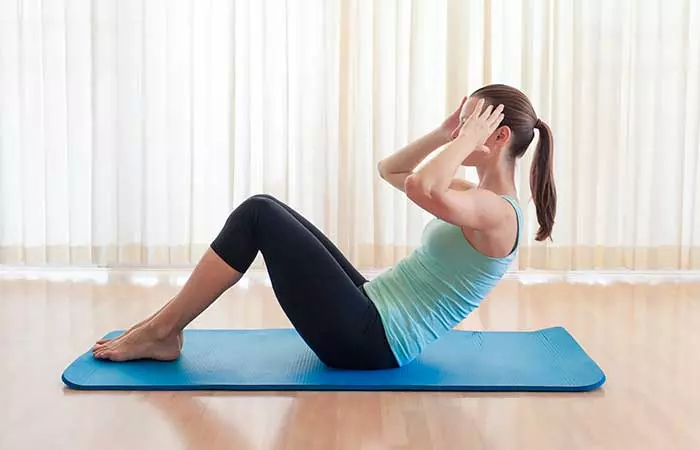
A classic strength workout that involves you lying on your back, lifting your upper body to target your ab and hip muscles directly. There are a few variations of sit-ups but master the basic sit-up first.
- Lie down on your back, bend your knees to 90 degrees and place your feet flat on the floor or have the bottoms of your feet together with your knees open.
- You could place your hands behind your head with your elbows in line with your ears, or you could cross your arms over your chest.
- Tuck your chin and pull your abs in to sit up and reach towards your feet. Try to keep your feet down.
- Roll back down with control.
- Exhale as you lift and inhale as you lower.
- Perform 10-15 reps and do this for 3-5 rounds, resting 60 seconds between rounds.
6. Pull-Ups
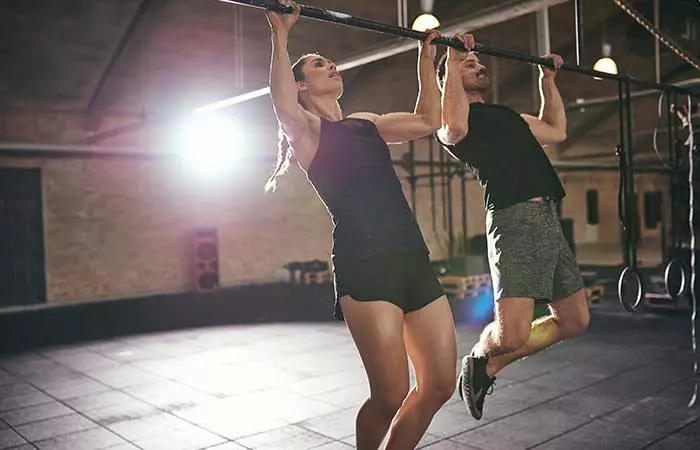
This upper body exercise is great for strengthening your back muscles, biceps, shoulders, and core. It also helps improve your grip strength.
- To do the pull up you will need a pull-up bar.
- Start by hanging on the pull-up bar with your shoulder width, and cross your ankles.
- Pull up by pulling your shoulder blades down and together.
- Lower yourself down with control.
- Since this is a challenging exercise that requires a lot of upper body and arm strength, you can step on a long band for assistance, turn your palms to face you, or use an assisted chin-up machine.
Simple Lifestyle Changes To Achieve Your Ideal Body Composition
The key to achieving your ideal body composition is burning more calories than you eat to lose fat, getting about 1 gram of protein per lb bodyweight (2.2 g per kg) to preserve muscle, and lifting weights at least 2 times a week to preserve your muscle tone. Being physically active every single day to achieve your ideal body composition is great. However, alongside physical fitness, good nutrition is the key to seeing results. Get plenty of fruits and green leafy vegetables to increase protein in your diet (get at least 20 grams of protein at every meal and snack), and get 7-9 hours of sleep. Working out will help you build muscle, but good nutrition and quality sleep help you lose the fat on top so you can see them.
In addition to your physical health, you also need to take care of your mental health. Spend some time meditating and practicing breathing exercises when you feel stressed. Meditation and yoga can also help boost your mental well-being. Lowering stress can stop emotional eating and help you keep a healthy, balanced diet.
If working out intensely or lifting weights is not currently feasible for you, take a walk for 30 minutes. It is the simplest thing that you can do. You don’t need any expensive equipment to walk; all you need is a sturdy pair of shoes. If you think you are going to be bored on your walk, grab a buddy or plug in your earphones and listen to your favorite music and keep walking. Walking for 30 minutes on a daily basis not only helps you in burning calories and losing weight but also helps in improving your overall mood (7).
 Did You Know?
Did You Know?Infographic: Top 5 Body Composition Exercises
While genetics may play a role in body composition, following a balanced diet and an exercise routine can help you achieve your desired body. Rather than focusing on the duration of the exercises, doing the right ones the right way can help you get a toned physique. Check out the infographic below to discover some exercises for improving body composition.

Illustration: StyleCraze Design Team
To sum up, body composition is the ratio of fat vs. muscle that is present in your body and is more important than your total weight number. Women should aim for less than 30% body fat and men for less than 24% body fat. To achieve your ideal body composition, you need to incorporate a workout routine that blends cardio to burn calories with strength and resistance training for muscle mass. In addition, you need to make a few simple lifestyle changes like eating healthy, getting enough protein, getting adequate sleep, and managing stress. Follow these simple tips, and you will finally see the results you have been working so hard for!
Frequently Asked Questions
How often should I change my exercise routine to improve body composition?
You can change your exercise routine every 4 to 6 weeks to keep your body challenged. Mix up the exercises, intensity, or how long you work out. This can help improve body composition and keep you progressing.
What sport is body composition used in?
Diving, rowing, gymnastics, weight lifting, marathon, and basketball are a few sports for which knowing your body composition is important.
Is BMI a good measure of body composition?
No, BMI (Body Mass Index) takes into consideration a person’s weight and height and is not an accurate measure of the ratio of fat and muscle mass in your body
Are body composition exercises suitable for all fitness levels?
Push-ups, squats, and lunges are for beginners, while advanced fitness enthusiasts can try burpees, pull-ups, and kettlebell swings that demand advanced strength and conditioning. Consult a qualified fitness professional before starting a new exercise program, especially in case of any underlying health conditions or concerns, to know which exercises are suitable for you.
How long does it take to see results from body composition exercises?
The time it takes to see results from body composition exercises varies depending on factors like fitness level, diet, exercise routine, and genetics. For some, changes in body composition may occur within a few weeks. Others might need months of exercise and a healthy diet to see significant changes in body fat percentage or overall body composition. As every individual’s body is unique and results may vary, one must focus on progress and celebrate the small successes along the journey.
Can body composition exercises be done at home or do I need to go to the gym?
Body composition exercises can be done at home and the gym, depending on personal preference and access to equipment. Many body composition exercises require little to no equipment. You may read about various no-equipment workouts at home that are aligned with the idea of body composition exercises for better results. However, having access to equipment like resistance bands, dumbbells, or kettlebells can undoubtedly help one add variety and challenge their home workouts. One may use household objects like water bottles, chairs, or stairs to modify exercises and create resistance.
Body composition is the proportion of fat and fat-free mass in your body. Learn how to measure and improve your body composition from the video below.
Personal Experience: Source
StyleCraze's articles are interwoven with authentic personal narratives that provide depth and resonance to our content. Below are the sources of the personal accounts referenced in this article.
i. Jumped Rope for 7 Days and This is What Happenedhttps://mrvyilmaz.medium.com/i-jumped-rope-for-7-days-and-this-is-what-happened-af56c07b0df7
References
Articles on StyleCraze are backed by verified information from peer-reviewed and academic research papers, reputed organizations, research institutions, and medical associations to ensure accuracy and relevance. Read our editorial policy to learn more.
- Measuring Body Composition
https://adc.bmj.com/content/91/7/612.abstract - Body Composition Methods: Comparisons and Interpretation
https://www.ncbi.nlm.nih.gov/pmc/articles/PMC2769821/ - Effect of Two Different Weight-loss Rates on Body Composition and Strength and Power-Related Performance in Elite Athletes
https://www.researchgate.net/publication/51113664_Effect_of_Two_Different_Weight-Loss_Rates_on_Body_Composition_and_Strength_and_Power-Related_Performance_in_Elite_Athletes - Increasing Lean Mass and Strength: A Comparison of High-Frequency Strength Training to Lower Frequency Strength Training
https://www.ncbi.nlm.nih.gov/labs/pmc/articles/PMC4836564/ - Effects of Strength Training on Physical Function: Influence of “Power” “Strength” and Body Composition
https://www.ncbi.nlm.nih.gov/labs/pmc/articles/PMC2966873/ - Understanding Deadlifts and Its Variations
https://www.researchgate.net/publication/337670594_Understanding_the_deadlift_and_its_variations - Health Benefits of Walking in Nature: A Randomized Controlled Study Under Conditions of Real-life Stress
https://www.researchgate.net/publication/327946184_Health_Benefits_of_Walking_in_Nature_A_Randomized_Controlled_Study_Under_Conditions_of_Real-Life_Stress
Read full bio of Gabbi Berkow
Read full bio of Varsha Patnaik
Read full bio of Arshiya Syeda
Read full bio of Payal Karnik








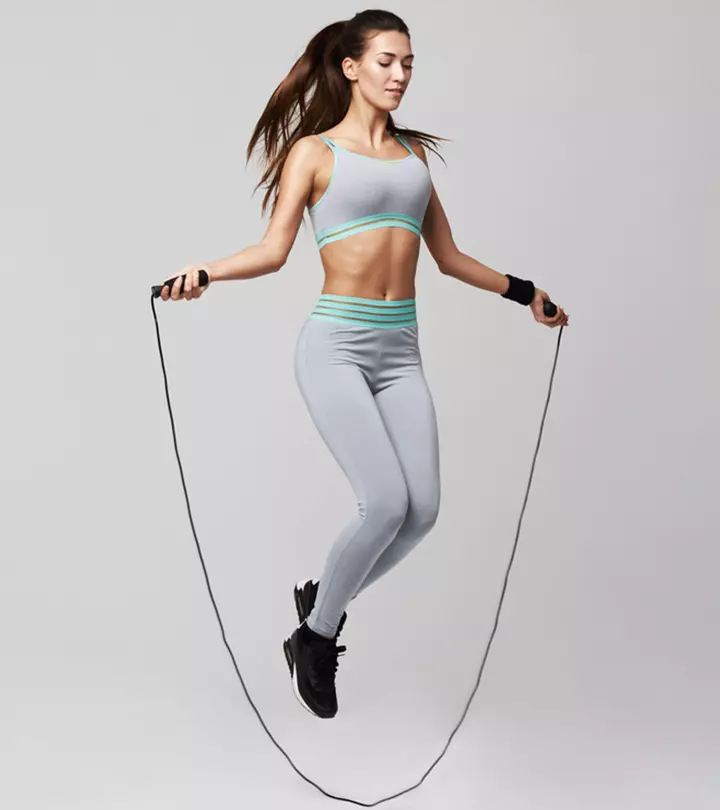
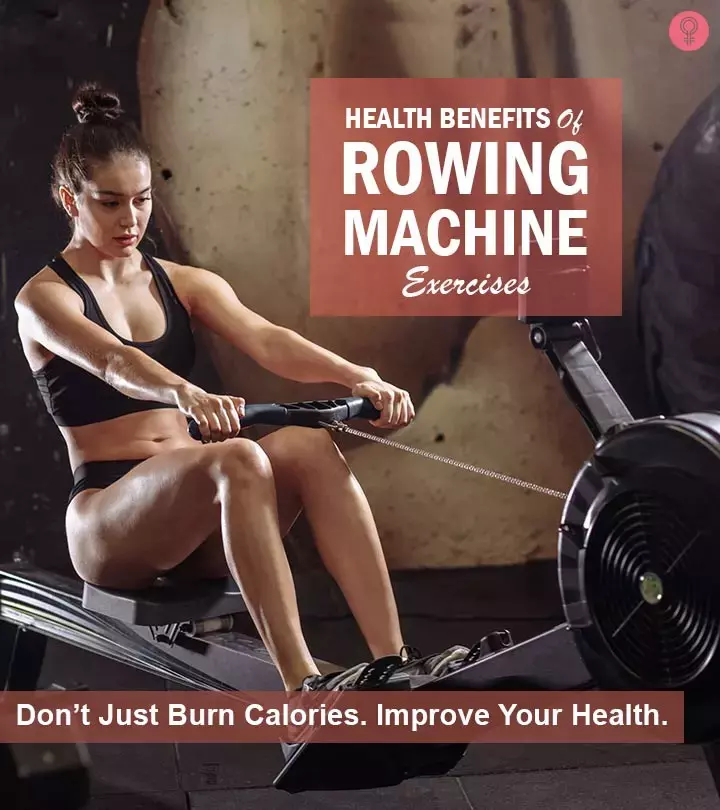

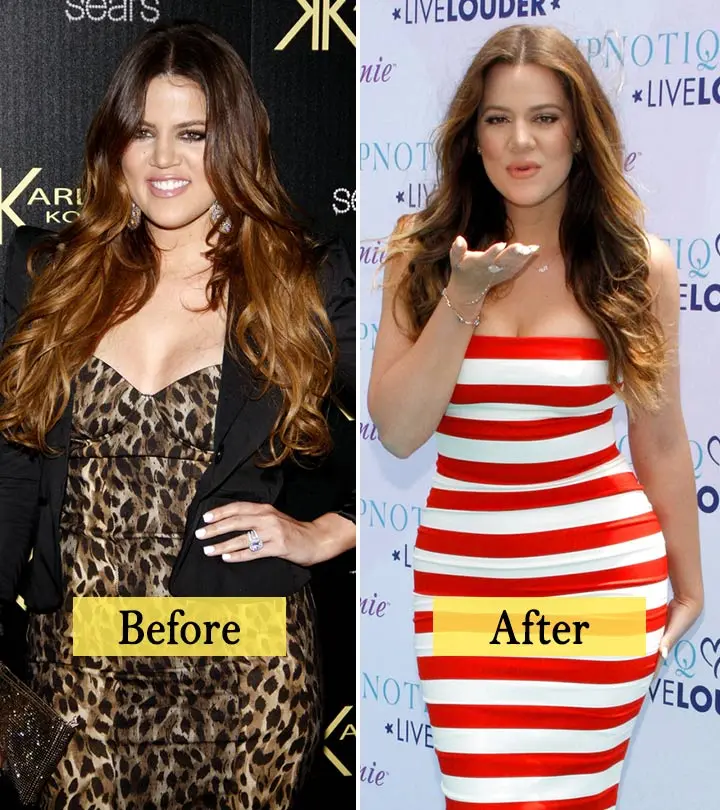
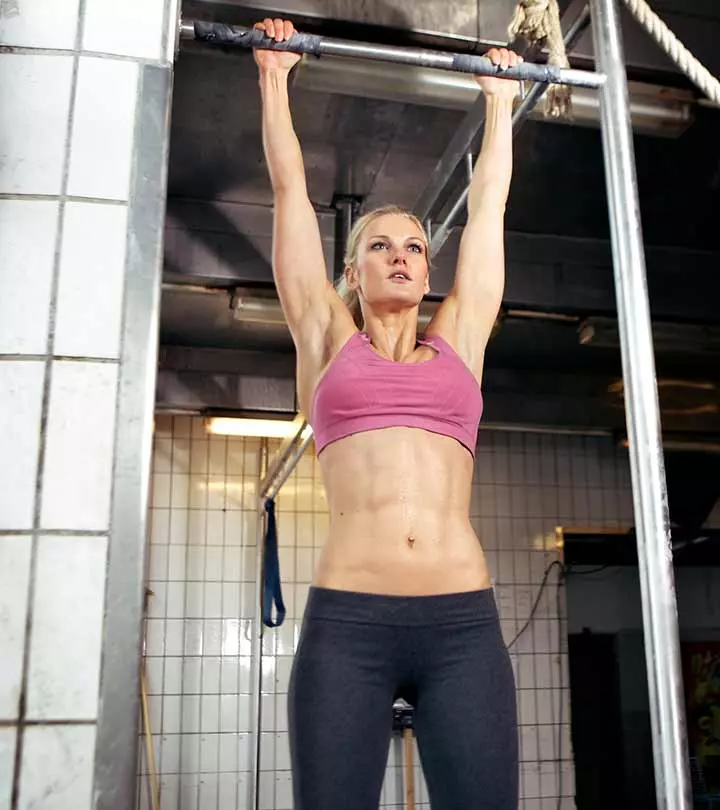
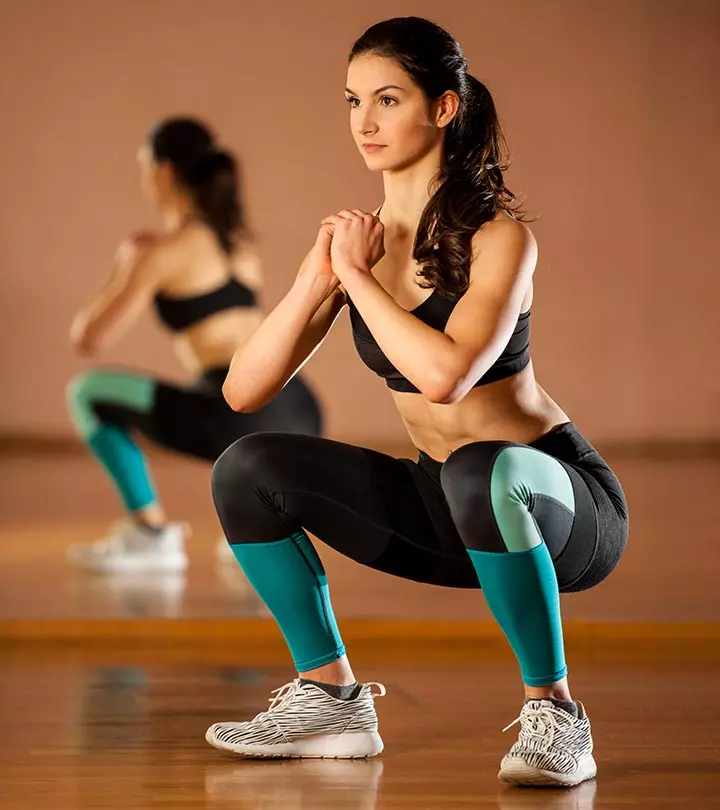
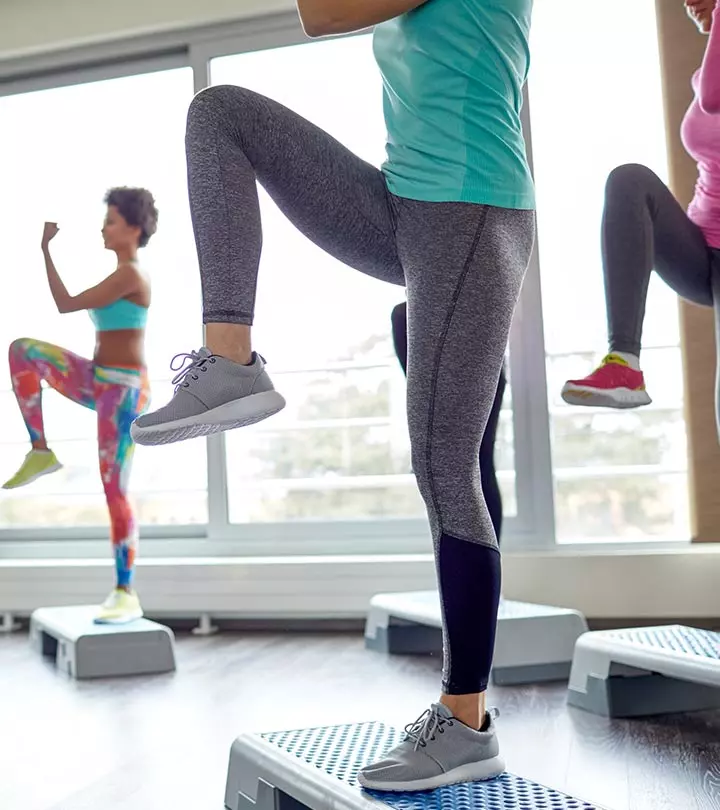

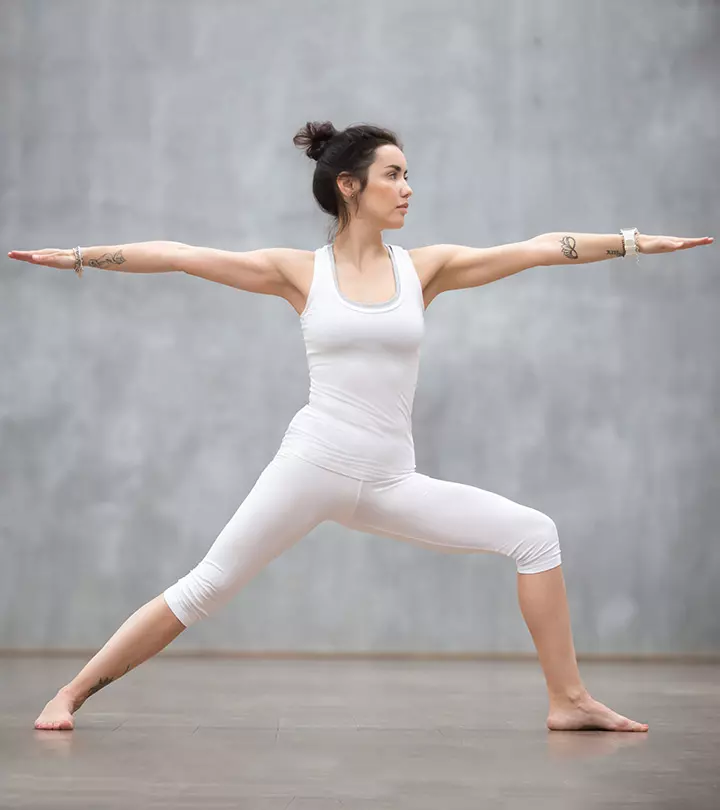
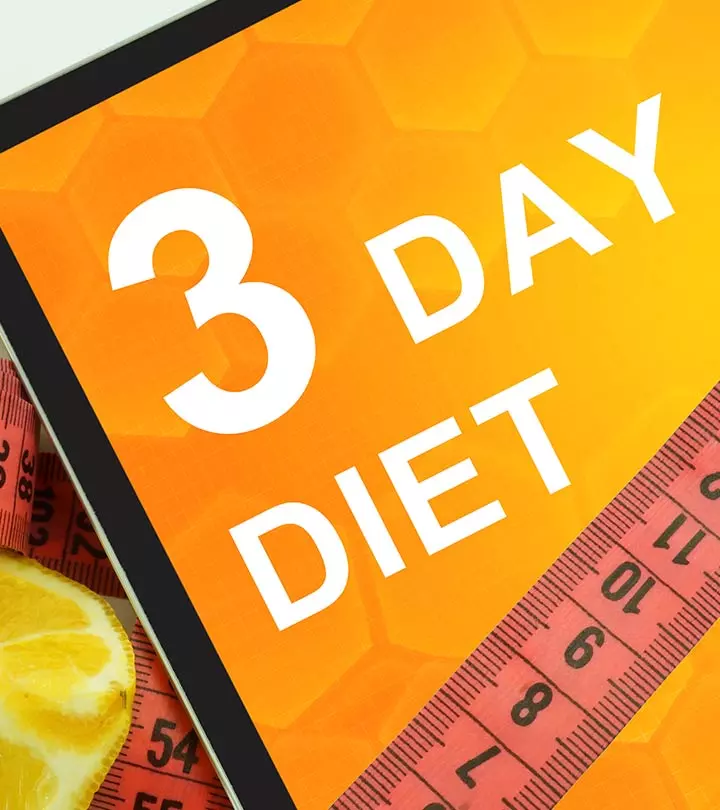
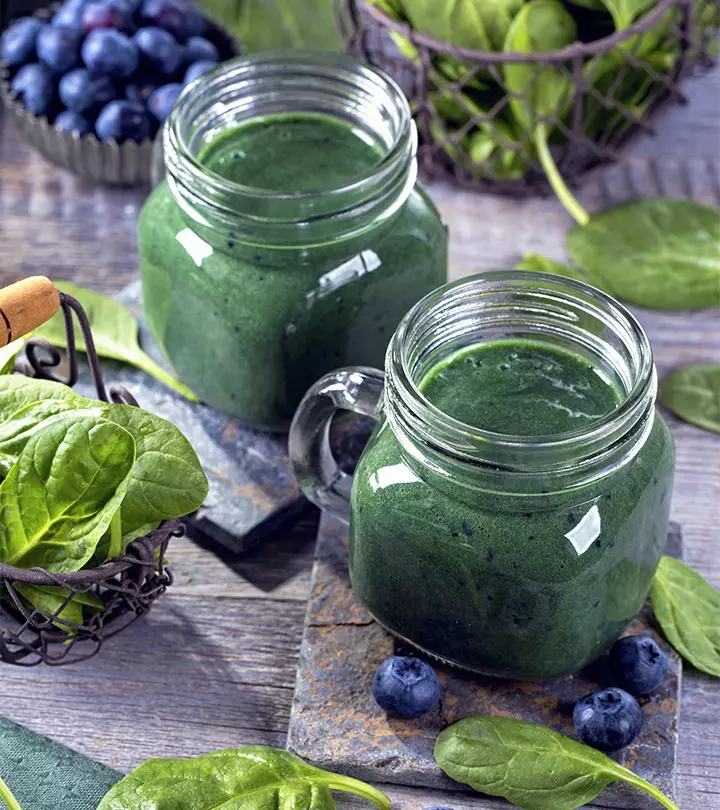


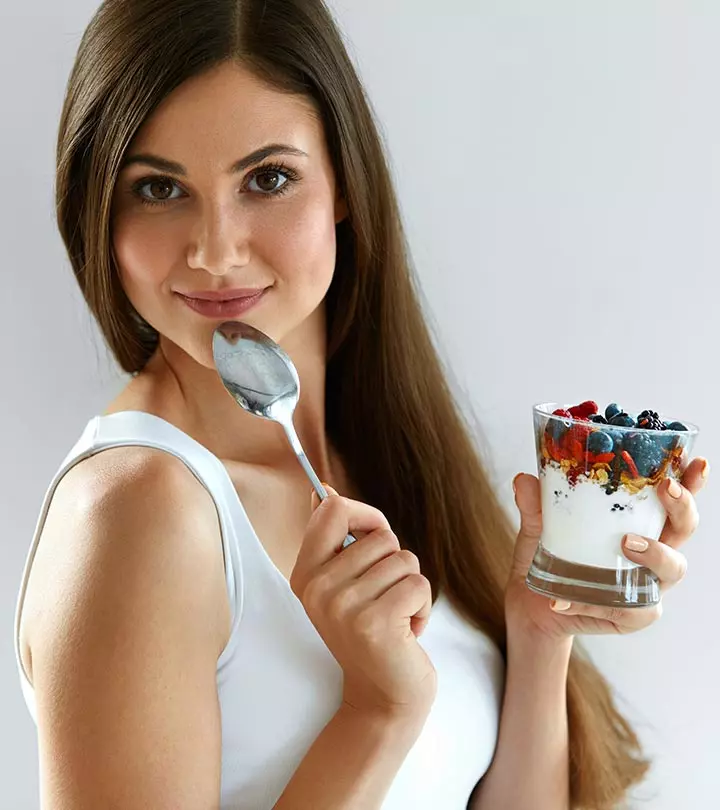
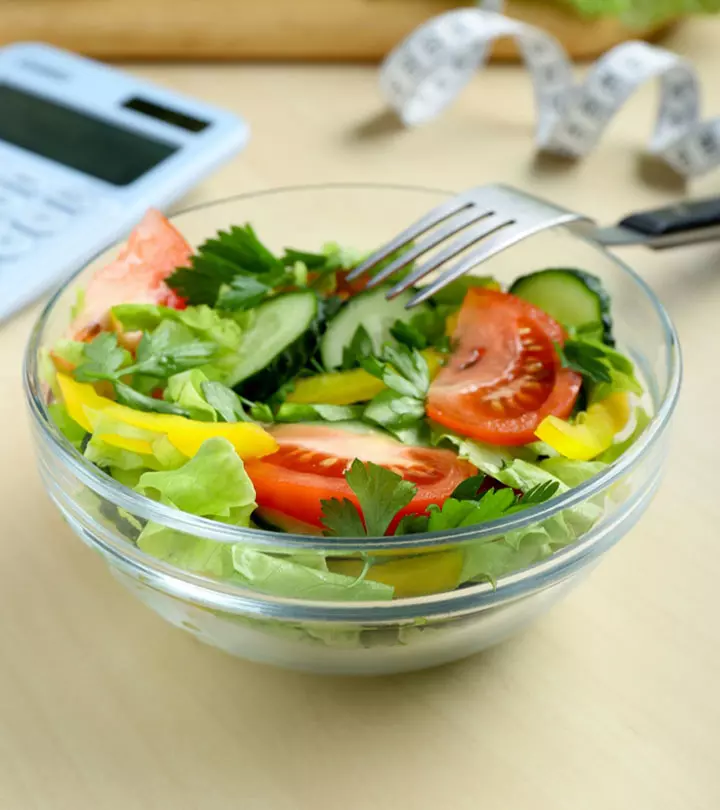


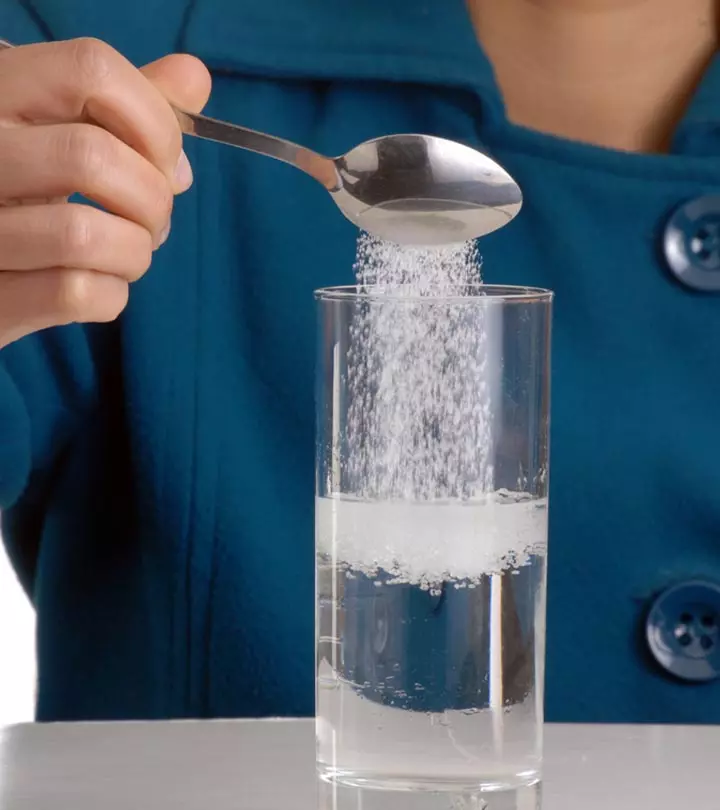
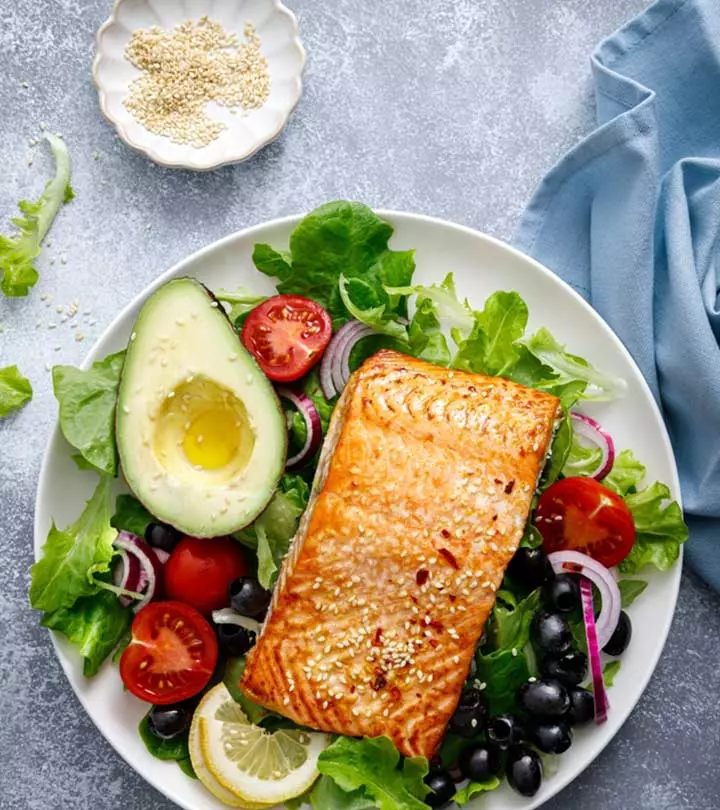
Community Experiences
Join the conversation and become a part of our empowering community! Share your stories, experiences, and insights to connect with other beauty, lifestyle, and health enthusiasts.